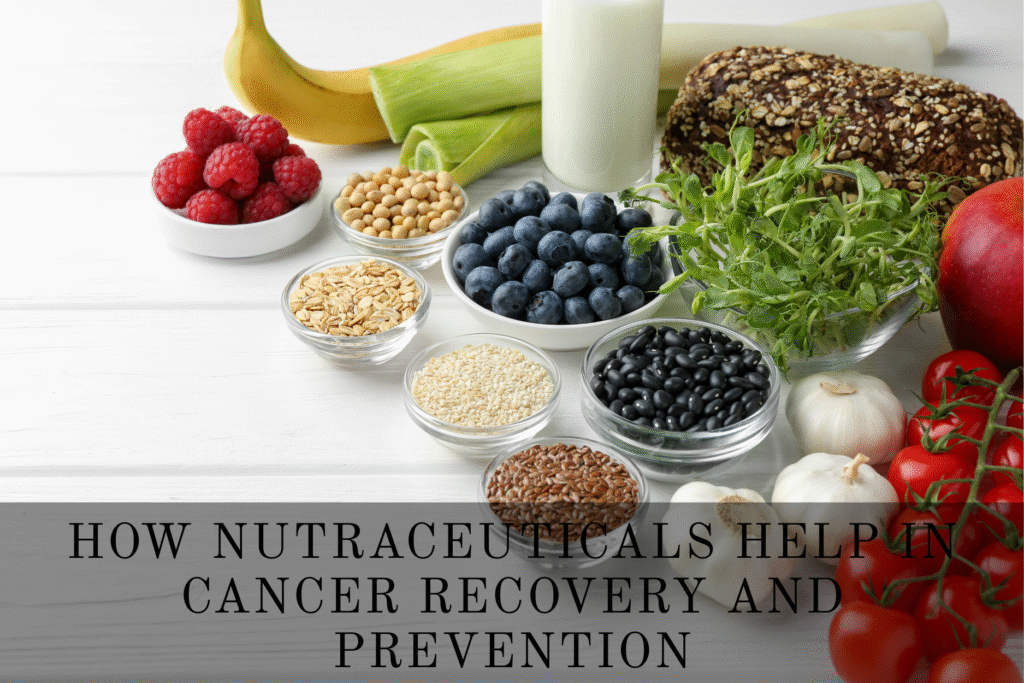How Nutraceuticals Help in Cancer Recovery and Prevention

Cancer is one of the most challenging health conditions of our time, and while medical treatment plays the central role, nutraceuticals are gaining importance as supportive therapy. These bioactive compounds from natural food sources such as vitamins, minerals, antioxidants, omega-3 fatty acids, and plant extracts not only strengthen the body during cancer treatment but may also help reduce the risk of recurrence.
🔹 Why Nutraceuticals Matter in Cancer Care
- Antioxidant Protection
Nutraceuticals like vitamin C, vitamin E, selenium, and lycopene help neutralize free radicals, reducing oxidative stress that can damage DNA and trigger cancer cell growth. - Immune System Boost
Compounds like beta-glucans, probiotics, vitamin D, and zinc enhance immune cell activity, helping the body fight infections and abnormal cell growth during chemotherapy or radiation. - Reducing Inflammation
Chronic inflammation is linked to cancer progression. Nutraceuticals like curcumin (from turmeric), omega-3 fatty acids, and resveratrol lower inflammatory markers, supporting healing. - Supporting Energy & Muscle Mass
Cancer treatment often leads to weight loss, fatigue, and muscle wasting (cachexia). Protein powders, BCAA supplements, and L-carnitine help maintain strength and recovery. - Gut Health & Better Nutrient Absorption
Treatments like chemotherapy can disturb gut flora. Probiotics, prebiotics, and fibers restore balance, improving digestion and nutrient absorption.
🔹 Examples of Key Nutraceuticals in Cancer Care
- Curcumin (Turmeric Extract): Anti-inflammatory, anti-cancer properties.
- Omega-3 Fatty Acids (Fish Oil/Algae Oil): Improves immunity & reduces cachexia.
- Coenzyme Q10: Supports energy, reduces treatment-related fatigue.
- Lycopene & Beta-Carotene: Strong antioxidants for cell protection.
- Vitamin D & Calcium: Bone protection, improves immunity.
- Protein Powder (Whey/Hydrolyzed): Helps maintain muscle mass and recovery.
🔹 Role in Prevention
Adopting nutraceuticals daily may lower the risk of cancer by:
- Protecting cells from oxidative stress.
- Reducing chronic inflammation.
- Strengthening immunity.
- Balancing hormones (important in breast, ovarian, prostate cancers).
- Supporting detoxification processes in the liver.
Conclusion
Nutraceuticals are not a replacement for cancer treatment, but they act as powerful allies in recovery, prevention, and overall quality of life. When combined with a healthy diet, exercise, and medical care, they create a strong foundation for healing and long-term wellness.
